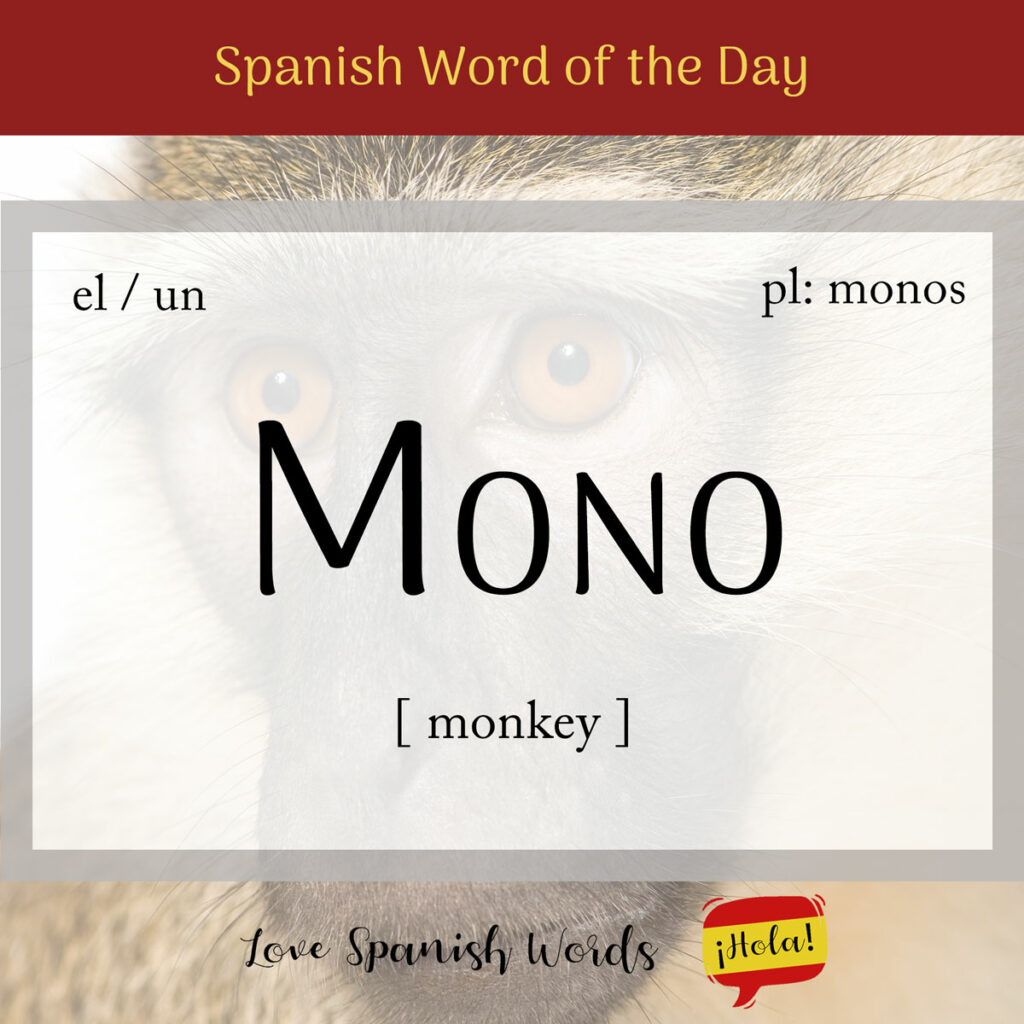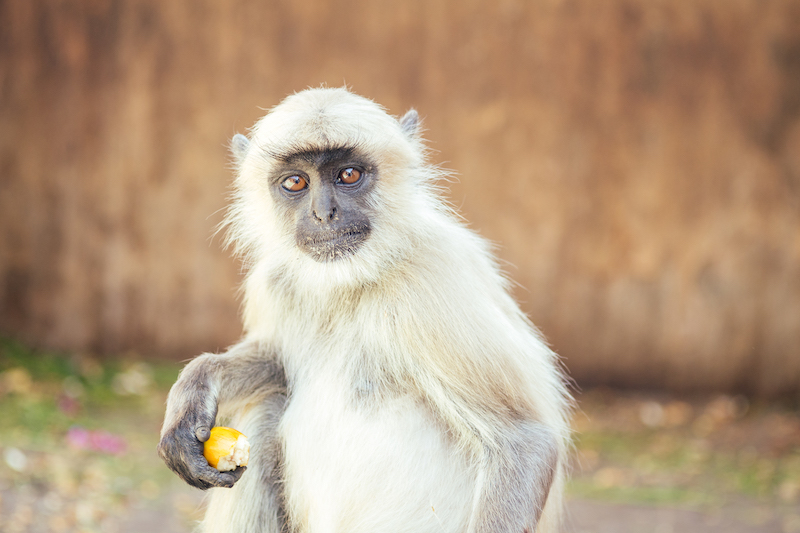Do you know those mischievous little critters that enjoy frolicking around, scampering through trees, and occasionally snatching your food when you cross paths with them? Yep, I’m talking about monkeys.
In Spanish, they are called monos. The word originates from the Arabic word مايمون (maymūn), which means fortunate, and they are often associated with luck and fortune in some cultures. They are highly intelligent and social creatures that belong to the familia de primates (primate family).
Latin American Pronunciation
European Pronunciation

The noun mono is masculine. Below are the definite and indefinite articles used:
- el mono = the monkey
- los monos = the monkeys
- un mono = a monkey
- unos monos = the monkeys
El mono está comiendo plátano.
The monkey is eating a banana.
There are over 300 species of monkeys that come in different shapes and sizes. They are classified into two groups: viejo mundo (old world) monkeys and nuevo mundo (new world) monkeys. The new world monkeys are native to the Americas, starting from southern Mexico down to South America, and are usually smaller. The old world monkeys are found across Asia and Africa and tend to be bigger. Below is a short list of some types of monkey species.
- mono araña = spider monkey
- mono ardilla = squirrel monkey
- mono aullador = howler monkey
- mono capuchino = capuchin monkey
- mono macaco = macaque
- babuinos (mono) = baboons
- mandril (mono) = mandrill
- tamarinos (mono) = tamarins
El mono aullador no me dejó dormir anoche.
The howler monkey didn’t let me sleep last night.

Other ways to use ‘mono’
Just like English, -mono is a prefix that signifies one, only, or single. It’s used in front of many Spanish words such as monólogo (monologue), monosílabo (monosyllable), monolingüe (monolingual), and monotonía (monotony).
Mono or mona can also be used as an adjective to describe a person or object with an attractive aspect. The closest English translation to it is cute. In Colombia, in some contexts, it might also be used as a slang term to refer to a person with fair skin, light hair, or light eyes. It’s similar to how blondie might be used colloquially in English.
La hija de Maria es una niña muy mona.
Maria’s daughter is a very cute girl.
Mono is also the word for a one-piece garment. This can include a jumpsuit, romper, overalls, playsuit, onesie, and any one-piece body suit.
Voy a usar un mono para la fiesta de este fin de semana.
I’m going to wear overalls to this weekend’s party.
Idiomatic expressions featuring ‘mono’
Tener monos en la cara
Literal translation: to have monkeys on the face
English meaning: used when someone stares or looks at you oddly or laughs in your face and you want to know what’s funny or wrong
Hacer el mono
Literal translation: do the monkey
English meaning: act like a monkey (in an irrationally or an embarrassing manner)

